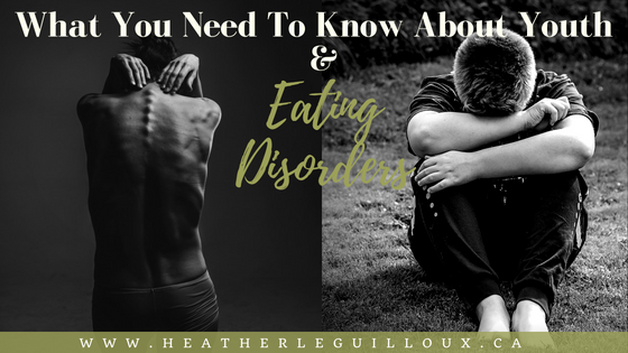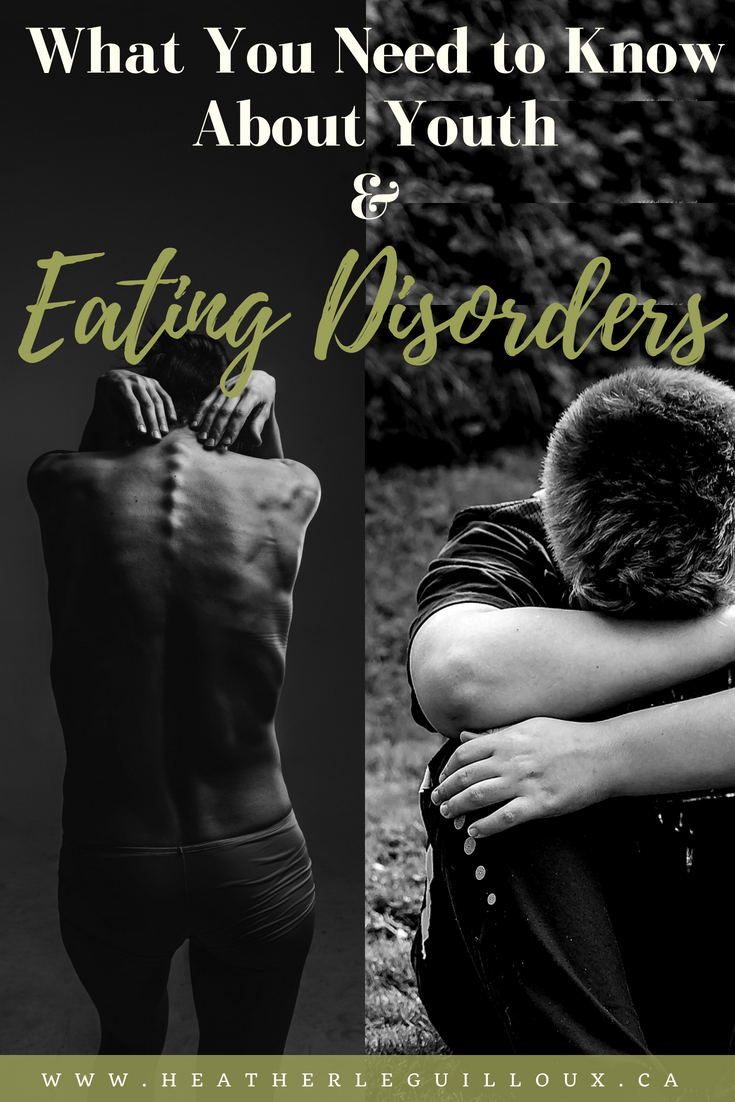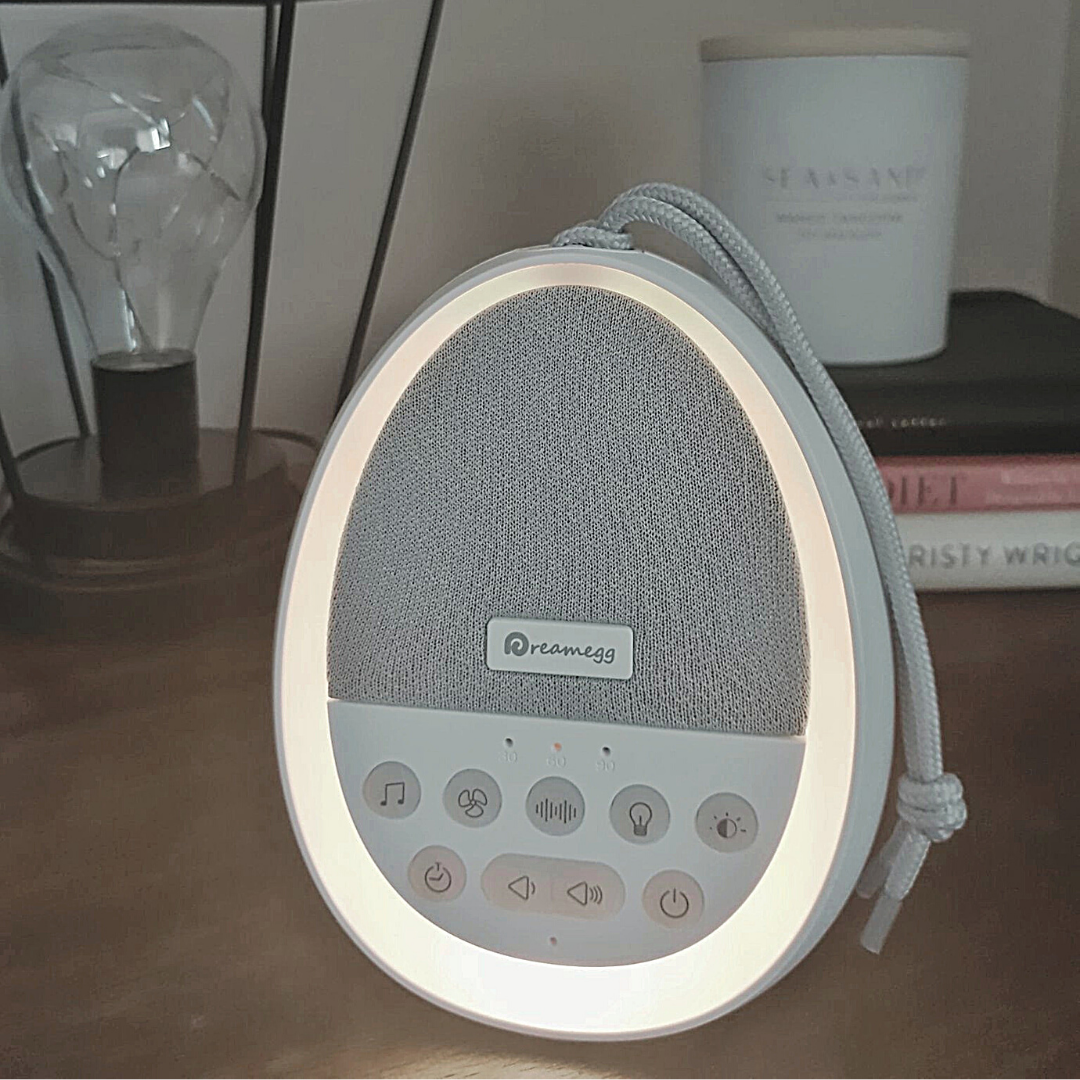|
|As we have been exploring the topic of eating disorders (EDs) on the blog this month, we have learned that the development of disordered eating and body image or self-esteem issues can impact anyone regardless of their age or gender. This article will focus on youth, which is one of the most at-risk populations that can develop eating disorders. "We live in a world that constantly bombards us with images and videos telling us how we should look, what we should wear and how we should act [and this] becomes unhealthy when it takes control of our lives and starts to impact our thoughts about ourselves, our feelings, our body and our relationships." Please note: The information in this article is not medical advice. If you are concerned about your health and well-being, or you are concerned you may have an eating disorder or if you or someone else is in an immediate crisis situation, reach out to a health professional, crisis line, or your nearest emergency service for more support. Read the other articles from this series: Facts About Youth & Eating DisordersYoung people can develop disordered eating habits or qualify for a diagnosis of an eating disorder just the same as adults. In fact, kids as young as 7 years old can be diagnosed with an eating disorder but more frequently these concerns develop between 11 to 14 years of age. Let's explore some facts about EDs & youth:
Some statistics from the National Eating Disorder Information Center (NEDIC):
Just like having a physical illness like a cold or the flu, having an eating disorder is never a person’s fault but instead usually the result of trying to cope with emotional pain or trauma. In additional to the psychological impacts, eating disorders may have extreme health symptoms and consequences including damage to the brain, heart, bones, kidneys and liver. Now that we have the facts including some of the statistics of how prevalent eating disorders in youth can be and how much these concerns can impact on a young person life, let's learn how you can help the young person in your life. How to Help a Young PersonMany times, a young person may be suffering with the concerns of disordered eating, body image & self-esteem issues or even the development of an eating disorder in silence. If you notice any concerning behaviours that a young person may be experiencing mental health concerns like an eating disorder, here are some example of how you can help. Listen Simply being there for a young person by letting the know you are there to listen can be immensely helpful for a young person. Perhaps they might not be ready to talk right away, but by offering a safe space to talk, they now know they have at least one person in their life that they can trust to open up to. Resist the urge to tell them they 'need help' or any victim blaming language, as this could cause the young person to believe that their concerns are part of a moral flaw within themselves. Offer Support If a young person indicates they are wanting to seek options of support, be sure to ask some questions before overwhelming them with resources. Be sure to use open-ended questions (rather than yes/no type questions) so that you allow the young person to share their ideas about what could help. For example, some open-ended questions you could ask include:
Share Resources When a young person is ready to talk, or accepts help, be sure to share relevant resources and options for help, and let them know that they deserve to be supported and that they deserve more help and that there is help available. Reach out to an eating disorder specialist in your area to discover more information to share with the person you are concerned about. Some options of resources include:
I hope this article was helpful at shedding some light on how youth can be impacted by eating disorders. Should you have any questions or comments, be sure to share your thoughts in the comments below or send me a message! The Meadows Ranch helps women and girls recover from eating disorders. They understand the pain that an eating disorder can bring to not only the one suffering first hand, but also their loved ones. Their experienced staff can help you or your loved one along the road of recovery. Located in Wickenburg, AZ | Contact 1-866-332-1140 Other Articles From this Series: References: nedic.ca, kidshealth.org, cheo.on.ca, eatingdisorderhope.com This article is a sponsored post. The links on this page may be embedded with affiliate links that I am compensated for at no additional cost to you.
7/21/2018 04:31:23 pm
What important information for parents, think you SO much for sharing this! xo 7/25/2018 04:10:47 pm
Hi Roxanne, I'm glad you found this article informative.. that is definitely my goal, to share as much as possible so others can be aware that disorders can exist, even if someone seems okay on the outside! 7/21/2018 04:44:48 pm
Thanks for the great article! My littles will be teenagers in just a few short years and I want to be aware and proactive with this. 7/25/2018 04:11:35 pm
You are very welcome, and I'm so glad to hear that you want to be proactive to support your own children. Comments are closed.
|
Welcome to the blog!↓ That's me, Heather. :)
MENTAL HEALTH RESOURCE VAULTGreat!Check your email for instructions on how to access the Mental Health Resource Vault. Categories
All
Popular Posts// 25 Positive Mindset Quotes
// Self-Care Bullet Journal Spreads // 7 Ways Your Physical Health is Connected to Your Mental Health |





 RSS Feed
RSS Feed
















